More than 90% of all human and animal infections occur at mucosal surfaces. In addition, mucosa are colonised by commensal beneficial micro-organisms, meaning that the mucosal immune system must be able to differentiate between friend and foe. This meeting aims to focus on how microbes interact with mucosal surfaces, cross-talk that occurs between the host and microbes, and strategies that we use to treat mucosal infections and maintain well-being.
Recent advances in our understanding of the composition of mucus and in glycobiology, combined with sequencing technologies which have identified polymicrobial communities living in distinct niches in the body, enhances our ability to decipher how microbes interact with their hosts, and how to use that knowledge to both treat infections and maintain health. This meeting aims to bring together microbiologists in Ireland, the UK and further afield working on both bacteria and viruses that live at mucosal surfaces to share their knowledge and expertise and promote collaboration.
This Focused Meeting will take place between 21–22 June 2018 at George Moore Auditorium, O'Brien Centre for Science at University College Dublin, Ireland.
Organising committee: Marguerite Clyne (University College Dublin, Ireland) and Gerald Barry (University College Dublin, Ireland).
Key topics:
Follow us on Twitter @MicrobioSoc
Updates on Microbes and Mucosal Surfaces can be found using the hashtag: #MMS18
Image: Photo by Eric Erbe, digital colorization by Christopher Pooley, both of USDA, ARS, EMU. - This image was released by the Agricultural Research Service, the research agency of the United States Department of Agriculture, with the ID K11077-1 (next)., Public Domain, https://commons.wikimedia.org/w/index.php?curid=958857
Abstract submission is now closed. The poster abstract book can be downloaded below.
Abstracts should be a maximum of 250 words. The Society has produced a guide to give delegates some tips from the session organisers on how to write a great abstract, which can be downloaded below:
Please note that the abstract is the only information session organisers use when deciding whether to accept your work for presentation as an offered oral or poster. If accepted, it will also be published in the abstract book for the conference – so think carefully about what needs to be included.
In order to ensure your presentation runs smoothly, you are asked to comply with the following:
Those who are presenting a poster must ensure the work is presented as below. We cannot accommodate incorrectly formatted posters during the conference.
A Journal of Medical Microbiology poster prize will be awarded at the meeting. The prize will be awarded to a poster that presents particularly compelling or novel research in the journal's subject field, and will be presented by former Journal of Medical Microbiology Editor, Marguerite Clyne. The winner will receive a cash prize, certificate and a year's membership to the Microbiology Society.
Registration is now open.
| Early bird rate Available until Thursday 14 June |
|
|
| Full and Full Concessionary Member (including dinner*) | £170 | £180 |
| Full and Full Concessionary Member (excluding dinner) | £120 | £130 |
| Postgraduate and Undergraduate Student Member (including dinner*) | £120 | £130 |
| Postgraduate and Undergraduate Student Member (excluding dinner) | £70 | £80 |
| Affiliate Member (including dinner*) | £200 | £210 |
| Affiliate Member (excluding dinner) | £150 | £160 |
| Non-member (including dinner*) | £220 | £230 |
| Non-member (excluding dinner) | £170 | £180 |
*The conference dinner will be held at the family-run O'Connells restaurant, and will include a three-course meal and half a bottle of wine.
Upon registration you should receive an automated confirmation email. Please contact [email protected] if after 24 hours this has not been received.
If you need a letter of invitation for a visa application, we will be happy to supply this after we have received full payment.
The Department of Justice, Equality and Law Reform has primary responsibility for Ireland’s immigration and visa policy. For more information on visa requirements for Ireland please see their website www.dfa.ie
Please note that all conference delegates are responsible for their own travel and visa arrangements; the Microbiology Society will not take any responsibility for travel or visa problems.
All registration fees must be paid in full BEFORE arrival at the meeting. Any outstanding registration fees must be paid before admittance will be granted to the meeting.
Refunds will not be provided.
Substitutions of attendees can be made at any time by contacting [email protected].
International speakers are invited to present their work in this field of microbiology. Each person below is highly recognised.
Invited speakers

Cormac Gahan graduated in 1996 with a PhD in Immunology and Microbiology from University College Cork. He has since published numerous peer-reviewed articles and book chapters in journals including PNAS, Molecular Microbiology, Infection and Immunity, Vaccine and Journal of Bacteriology.
Gahan leads the Bile Research Group within APC Microbiome Ireland with Susan Joyce and also has a significant research interest in the area of Listeria monocytogenes pathogenesis (in collaboration with Prof. Colin Hill). In particular, his research interests focus upon host–microbe signalling in the gut and the adaptation of L. monocytogenes to the gut environment. Recent work has also examined the use of live L. monocytogenes and L. lactis vectors as gene and protein delivery platforms for novel vaccination and therapeutic approaches. This work has been carried out in collaboration with Mark Tangney at the Cork Cancer Research Centre and Brendan Griffin in the School of Pharmacy, UCC.

Ian Goodfellow is a Wellcome Senior Fellow, Professor of Virology and deputy head of the Department of Pathology at the University of Cambridge. His research focuses on the mechanisms of RNA virus replication and pathogenesis, as well as the identification of control measures for the prevention or treatment of infections. His lab established the use of reverse genetics for the study of the molecular basis of norovirus pathogenesis, developing the first infectious reverse genetics system for noroviruses. They use a combination of biochemical, molecular and proteomic approaches to define cellular pathways involved in the norovirus life cycle and small animal models to examine viral pathogenesis.
During the 2014-2016 Ebola virus epidemic, Goodfellow was led a team of scientists who established Ebola virus diagnostics at the Mateneh Ebola Treatment Centre in Makeni. He subsequently established a sequencing service in the centre that provided real-time sequencing support to the epidemic response.
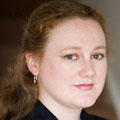
Michelle Kilcoyne completed her PhD in analytical carbohydrate chemistry at the School of Chemistry at National University of Ireland (NUI), Galway in 2004, specialising in structural analysis of bacterial polysaccharides. She then took up a postdoctoral position in Arizona State University in the USA where she further specialised in mass spectrometry and HPLC, as well as expanding her interests into mammalian glycosylation. She returned as a postdoctoral researcher to NUI Galway in 2007, working on industry-supported and European projects, developing high throughput platforms for carbohydrate profiling. In 2014, Kilcoyne was appointed Lecturer in Glycosciences and is currently a member of Discipline of Microbiology at NUI Galway. She is the recipient of a Royal Society of Chemistry Analytical Chemistry Trust Fund Fellowship for 2018. Her main research interests are in glycoanalytics and carbohydrate-mediated host–microbe interactions.

Catherine Robbe Masselot is a biochemist who specialises in the purification and structural characterisation of mucin glycosylation. After completing a PhD in Molecular Biology and Biochemistry at the University of Lille (France), followed by a postdoctoral position in Bristol, UK (under the supervision of Tony Corfield), she was appointed as an assistant professor in 2006. Her current research is focused on a better comprehension of the molecular dialogue established between the host and commensal microbiota, pathogens and exogenous bacteria like probiotics. She tries to elucidate mechanisms by which host cells or bacteria modulate mucin biosynthesis and glycosylation in response to a bacterial colonisation or infection. Most of her research is dedicated to the identification of new bacterial adhesins and their ligands responsible for the bacterial binding to mucins.
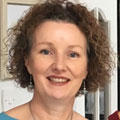
Siobhán McClean has a keen interest in investigating host microbial interactions at University College Dublin. Her research group has focused for many years on studying the interactions between opportunistic cystic fibrosis-associated pathogens and lung epithelia. Her expertise lies in the mechanisms of pathogenesis of Burkholderia cepacia complex, including mechanisms of colonisation, invasion and host response. Identification of novel bacterial proteins involved in host cell attachment has led to a growing activity in investigating novel vaccine approaches to prevent bacterial infections in her lab.
She was awarded a PhD in Biochemistry from Imperial College, London in 1993. After a post-doc at University College Dublin, she worked in Elan Pharmaceutical Technologies for 5 years where she developed an interest in lung and gastrointestinal epithelial cell biology and in vaccines. She subsequently spent 16 years as a principal investigator at Institute of Technology Tallaght in Dublin, before moving to University College Dublin in 2016.

Tadhg Ó Cróinín is a lecturer at the School of Biomolecular and Biomedical Science at University College Dublin where he is currently serving as Head of Microbiology. After completing his undergraduate degree in Trinity College Dublin, Tadhg undertook a PhD at University College Dublin before completing a short term EMBO Fellowship at the Vrije University Amsterdam. Ó Cróinín also carried out a research fellowship at the National Institutes of Health in Bethesda, Maryland before returning to Ireland to work at Trinity College Dublin. In his current post at University College Dublin, Ó Cróinín's research interests centre on the regulation of virulence by gastrointestinal pathogens, with a particular interest in C. jejuni and S. Typhimurium.
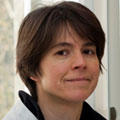
After studying biology at the University of Bonn and the University of Marburg in Germany, Stephanie Schüller completed her PhD at the University of Würzburg, investigating how the gut pathogen Listeria monocytogenes modulates the macrophage immune response. In 1997, she came to the UK as a Marie Curie Fellow at Imperial College London, where she worked on the interactions of Mycobacterium bovis with human macrophages. In 2001, Stephanie took up another postdoctoral position at the Royal Free Medical School, University College London which started her long-lasting relationship with diarrhoeagenic E. coli (EHEC and EPEC) and human intestinal epithelium. In 2010, she moved to Norwich where she established her own research group at the University of East Anglia and the Quadram Institute.
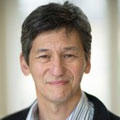
Christoph Tang is currently Professor of Cellular Pathology at the Sir William Dunn School of Pathology, Professorial Fellow at Exeter College and a Wellcome Trust Senior Investigator. He was awarded a PhD at the Royal Postgraduate Medical School when he studied fungal pathogenesis and was then appointed as a clinical lecturer in the Nuffield Department of Medicine at the University of Oxford to complete his specialist medical training in Infectious Diseases and General Medicine. He received an MRC Clinician Scientist Award in 1997, which included a year's fellowship at the Center for Vaccine Development at the University of Maryland. He was appointed to a Readership, then Professorship in Infectious Diseases at Imperial College London in 2001, and took up his current position in 2010. His group studies the fundamental mechanisms of how obligate human bacterial pathogens adapt to microenvironments found in vivo, and applies this understanding to vaccine development.
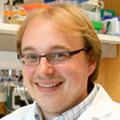
Sebastian Winter received his MSc in Biochemistry from the University of Bayreuth, Germany, in 2006. Under the co-mentorship of Holger Rüssmann (University of Munich) and Andreas Bäumler (UC Davis), Winter studied innate immune evasion by Salmonella enterica serovar Typhi, the causative agent of typhoid fever. In 2010, Winter obtained his PhD from the University of Munich, Germany. He then continued his postdoctoral studies in the laboratory of Andreas Bäumler where he investigated alterations of the intestinal microbiota during episodes of inflammation. In 2013, Winter joined the Department of Microbiology at the University of Texas Southwestern Medical Center. His independent research group is investigating host–microbe and microbe–microbe interactions in the inflamed gut, with a particular interest in inflammatory bowel disease and infection with enteric pathogens.
This conference will take place at George Moore Auditorium (east entrance), O'Brien Centre for Science at University College Dublin, Ireland.
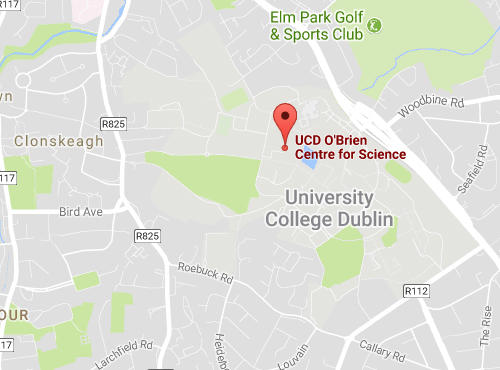
O'Brien Centre for Science
University College Dublin
Belfield
Dublin 4
Ireland
The carpark is located near O'Reilly Hall and will be open for our delegates free of charge.
For directions on how to get to the university, please visit the University College Dublin’s website or download the Commuting Guide below:
For advice on how to get to the O'Brien Centre for Science, please download the campus map below:
Please visit the Visit Dublin website to view a guide of what's on around the time of the conference.
Information about UCD Disability Supports can be found here.
We have been able to secure a discount on selected hotels and on-campus accommodation. Please see the rates below, available for delegates attending our meeting in June.
Please book directly on the UCD campus accommodation website.
Please book directly online or by emailing [email protected] and quoting the discount code ‘MMS2018’. Please note the discounted rate is subject to availability.
If you would like to source your own accommodation, Discover Ireland's website offers suggestions for a variety of options nearby.
Following the first two sessions of the conference, we would like to invite you to an informal drinks reception and poster session that will allow you to discuss the research with the authors, and to catch up with old contacts and make new ones. Drinks will be served in the Concourse area from 17:30.
Society Conference Grants will be available to support eligible members wishing to present at this Focused Meeting. Funding is also available for members requiring support for caring costs associated with conference attendance. The closing date for applications is Thursday 24 May 2018. You can apply for a grant before receiving notification about the outcome of your abstract submission. A conditional grant offer can be made without evidence of abstract acceptance if unavailable at the time of application, however evidence must be provided to claim any grant offered.
Each year, the Young Microbiologist of the Year Competition recognises and rewards excellence in science communication by a Microbiology Society Member who is a postgraduate student or postdoctoral researcher, having gained their PhD in the last two years.
To enter this competition, applicants must tick the appropriate box during online abstract submission. Finalists will be invited to give a 10-minute oral presentation (plus 5 minutes for questions) at the final at the Society’s Annual General Meeting.
The ECM Forum Co-chairing Scheme provides ECM Forum members with the opportunity to be involved in the chairing of scientific sessions at the conference. The Co-chairs will not receive any monetary value in co-chairing and will not take the place of a session Chair, but will receive a fantastic professional development opportunity to learn about being a session chair from more experienced colleagues.
ECM Forum members who are submitting an abstract to the meeting are asked to express interest in the Co-chairing Scheme via the abstract submission system, and are invited to provide a statement outlining the following information:
All applications will be reviewed by the Society's Divisions and successful Co-chairs will be introduced to the relevant session Chair.
Co-chairs will receive a letter of thanks from the ECM Forum Executive Committee confirming that they participated in the Co-chairing Scheme, and will be recognised in the conference programme.
For questions about the ECM Forum Co-chairing Scheme, please contact [email protected].Exhibition and sponsorship opportunities are available for this meeting. For more information, please contact [email protected] or download the exhibition pack.
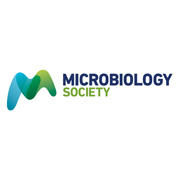
|
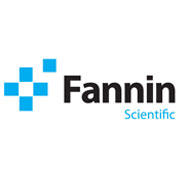
|

|
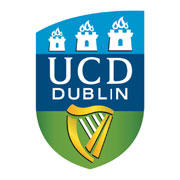
|
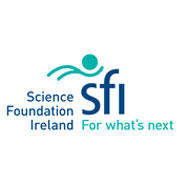
|

|